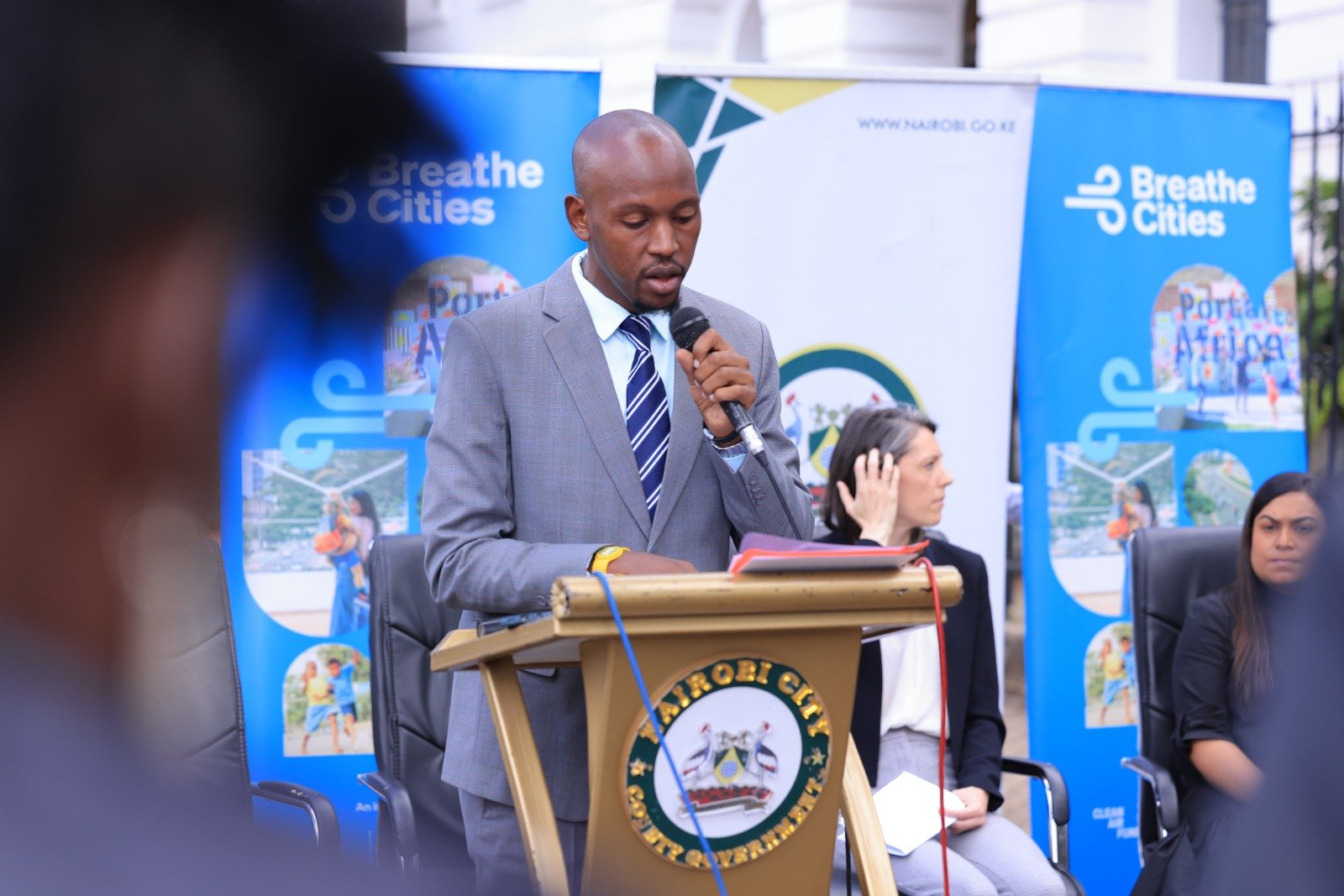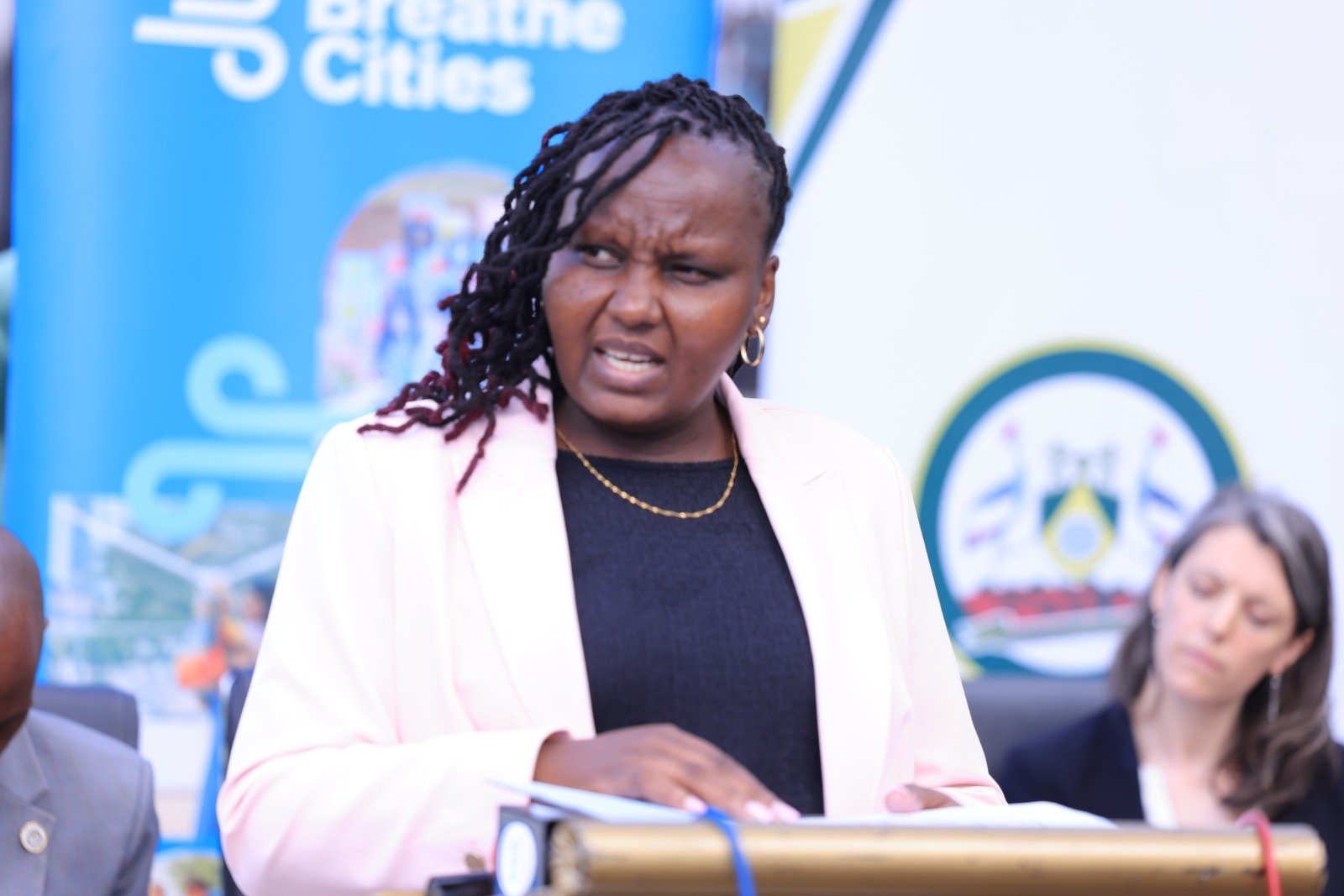Nairobi, 11 June 2025 – In a bold move to tackle Nairobi’s growing air pollution crisis, the city has launched its first city-owned air quality monitoring network. This historic step, led by the Breathe Cities Initiative, introduces a real-time system to measure air pollution in Nairobi, using 50 low-cost air sensors strategically installed across the capital.
Transforming Public Health Through Real-Time Air Quality Monitoring
The new air quality sensor network—one of the largest of its kind in Africa—marks a transformative shift towards evidence-based environmental governance. Nairobi’s air quality has consistently exceeded safe thresholds, with pollution levels four times higher than World Health Organization (WHO) limits in 2019.
“This is not merely an environmental initiative; it is about data-driven justice,” said the County Executive Committee Member (CECM) for Green Nairobi. “We are sending a clear, resounding message to Nairobi, to Kenya, and the world: Nairobi is taking its breath back.”
Why Monitoring Air Quality in Nairobi Matters
Air pollution in Nairobi is responsible for over 2,500 premature deaths annually, with the most vulnerable—children, older people, and informal settlement communities—bearing the brunt. The newly deployed air sensors will monitor harmful pollutants, such as PM2.5 and PM10, providing real-time, hyper-local data to inform health decisions and shape city planning.
“These sensors are not mere gadgets; they are our eyes and ears in the atmosphere,” the Chief Officer, Mr Morisia noted. “No longer will we be operating in the dark; we will be guided by the light of verifiable data.”

Empowering Communities with Transparent Data
The air quality monitoring network feeds into an integrated data system, soon to be accompanied by a public online portal. This portal will give Nairobi residents access to live air quality data, enabling individuals and communities to take proactive steps to protect their health.
“Transparency drives accountability,” said the CECM. “Use this knowledge to demand change, to advocate for cleaner practices, and to partner with us in this vital endeavour.”
The Nairobi City County Government has also trained county officers to manage the system, analyse sensor data, and convert insights into targeted interventions.
Policy Progress: Nairobi Leads in Clean Air Legislation
The launch of the sensor network builds on Nairobi’s leadership in air quality policy. The city has already enacted the Nairobi Air Quality Act 2022 and drafted two key frameworks—the Air Quality Action Plan (2025–2029) and the Air Quality Regulations 2024—to guide future enforcement and pollution reduction efforts.
The Chief Officer for Environment and Climate Action highlighted additional initiatives:
-
Deployment of 50 low-cost sensors, with 39 already installed.
-
Capacity building for county officers in calibration and data use.
-
Greening of public spaces to reduce urban heat islands.
-
Development of a public air quality data portal to promote transparency and citizen engagement.
“Air pollution is a cross-cutting challenge impacting the environment, public health, and the economy,” the Chief Officer said. “Let’s make Nairobi a city where every breath counts.”

Global Recognition: A Model for Clean Air Solutions in Africa
International partners—including Clean Air Fund, C40 Cities, and Bloomberg Philanthropies—have praised the project as a model for other cities across Africa seeking to scale up clean air solutions.
“This deployment is more than just the launch of 50 sensors; it’s a symbol of leadership in protecting public health through data-driven interventions,” said Lucile Brethes, Head of Project Delivery at Breathe Cities.
Seneca Naidoo, Regional Technical Head of Air Quality for C40 Cities, called the initiative a “replicable model for African cities ready to act on air quality.”

Holding Polluters Accountable, Involving Citizens
In a bold statement, the CECM addressed polluters directly:
“To polluters, let this message be unequivocally clear: we see you. The days of emitting harmful pollutants with impunity are drawing to a close.”
Residents are encouraged to use the data portal (once live) to plan outdoor activities, advocate for cleaner practices, and hold both government and private actors accountable.

Nairobi’s Path Forward: Breathing New Life into the City
The deployment of Nairobi’s city-owned sensor network signals a new era in environmental accountability and public health protection. It sets a precedent for African cities fighting air pollution, using data, technology, and community empowerment.
“With the deployment of these sensors,” the Chief Officer said, “we will be in a better position to identify pollution hotspots, enforce regulations, and develop sector-based interventions.”

